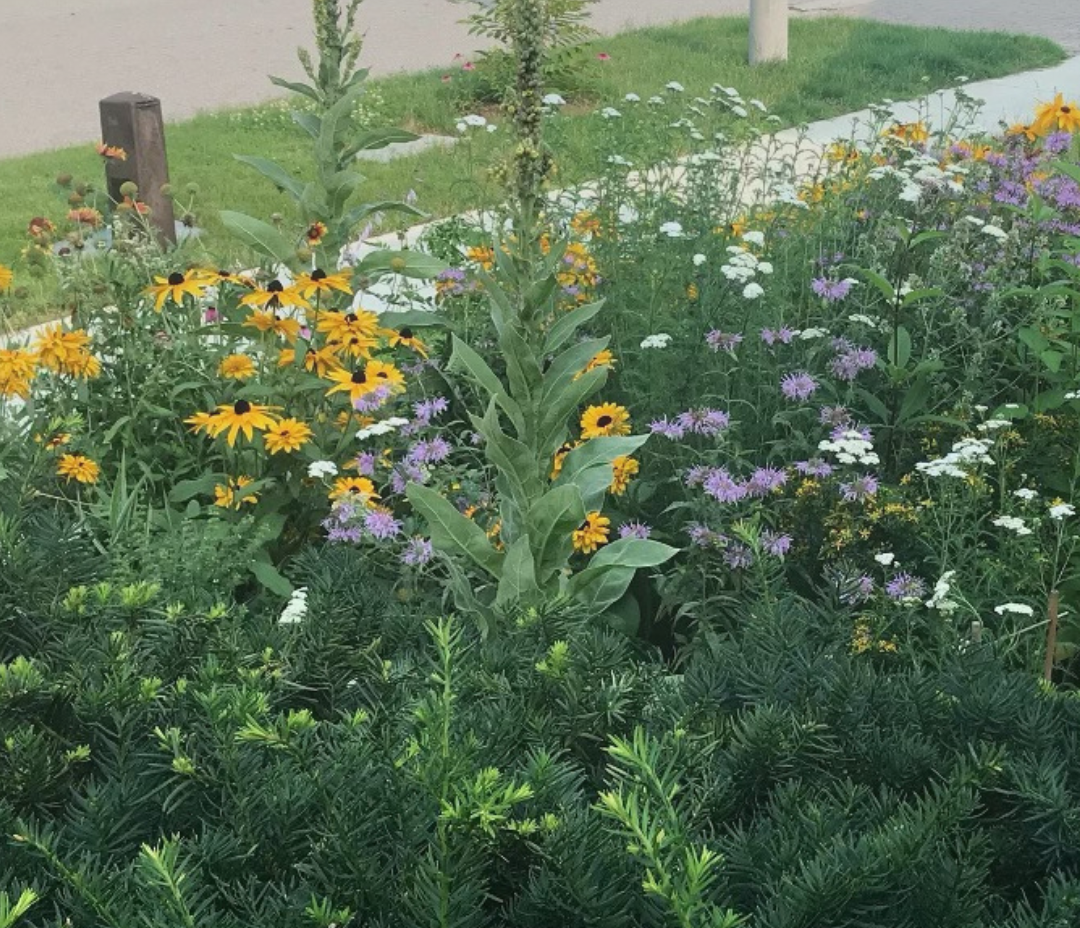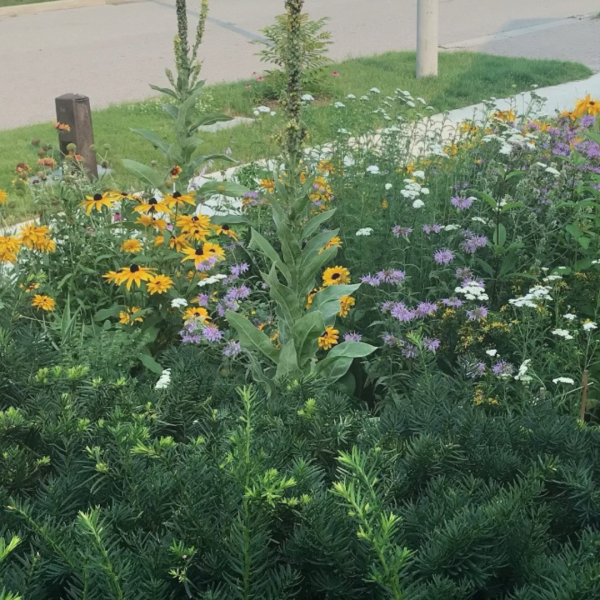EDL BYLAWS FOR BIODIVERSITY REPORT:
In support of the Open Letter to Municipalities, and the Call to Action with our allied organizations, we have developed the Bylaws for Biodiversity Report: Barriers and Opportunities for Naturalized Gardens on Private Property (A Review of Municipal Policies, Codes and Enforcement Practices in Canada). This project examines the current public policy landscape in Canada with respect to biodiversity strategies and regulation of gardens and landscaping on private property through municipal codes and bylaws. A main objective of this project is to identify areas for improvement and to inform the development of a solutions-oriented toolkit, to aid in the design of evidence-based and reproducible bylaw enforcement mechanisms.
To achieve this objective, this study was informed by a review of relevant biodiversity and climate literatures, and a comparison of selected municipal policies aimed at supporting biodiversity on public lands with zoning bylaws related to garden, yard and lot maintenance on private properties. This included a review of relevant municipal case law, existing policies and bylaws, and recent policy reforms that have altered the substance and enforcement of municipal bylaws, as well as periodic fact-checking conversations with identified subject matter experts.
The findings presented in this report are informed by data that were previously collected by the David Suzuki Foundation (DSF) in 2023. The DSF survey invited gardeners to self-report and share any experiences with property standards bylaws applicable in their municipality. The data were analyzed to identify where inconsistencies exist between municipal bylaw enforcement practices and local bylaws. The data are summarized in this report, across seven selected municipalities spanning four Canadian provinces: the City of Toronto, City of Hamilton , City of London, Prince Edward County, Town of Fredericton, Town of Lunenburg, and City of Saskatoon.
Ultimately, this study revealed a patchwork of inconsistent enforcement mechanisms that introduces uncertainty in the interpretation and application of bylaws, which may open municipalities to legal challenges while impeding progress to support biodiversity.
To address these challenges, this study also focused on the development of a companion document Bylaws for Biodiversity: Collaborative Toolkit for Municipalities. The toolkit has been strategically tailored to meet the needs of municipal planning and enforcement staff in terms of policy development and implementation respectively, aiming to assist staff and enforcement officials with validating complaints and enable them to take appropriate bylaw-aligned legal action while still respecting an individual’s rights to freedom of expression in their private gardens. The toolkit also aims to support improved public understanding of the bylaw enforcement process, and provides information necessary for individuals to defend a naturalized garden from regulatory overreach and to engage their municipality in bylaw enforcement reform as necessary.
This report has evolved from a project undertaken by graduate planning students in the School of Urban and Regional Planning at the Toronto Metropolitan University (TMU), as part of the Advanced Graduate Planning Studio course (PL8110), working in partnership with the David Suzuki Foundation (via Colleen Cirillo and Jode Roberts), supervised by Prof. Nina-Marie Lister. The draft report benefited from expert peer review and editorial assistance from Colleen Crillo of the David Suzuki Foundation, Lorraine Johnson, Brendon Samuels, and Sabrina Careri. A special thanks to Douglas Counter, Kayla Bryne, David Donnelly, Ethan Ling, Albert Paschkowiak, the David Suzuki Foundation’s Butterfly Rangers, and many municipal staff members who contributed expertise and answered our fact-checking inquiries.


